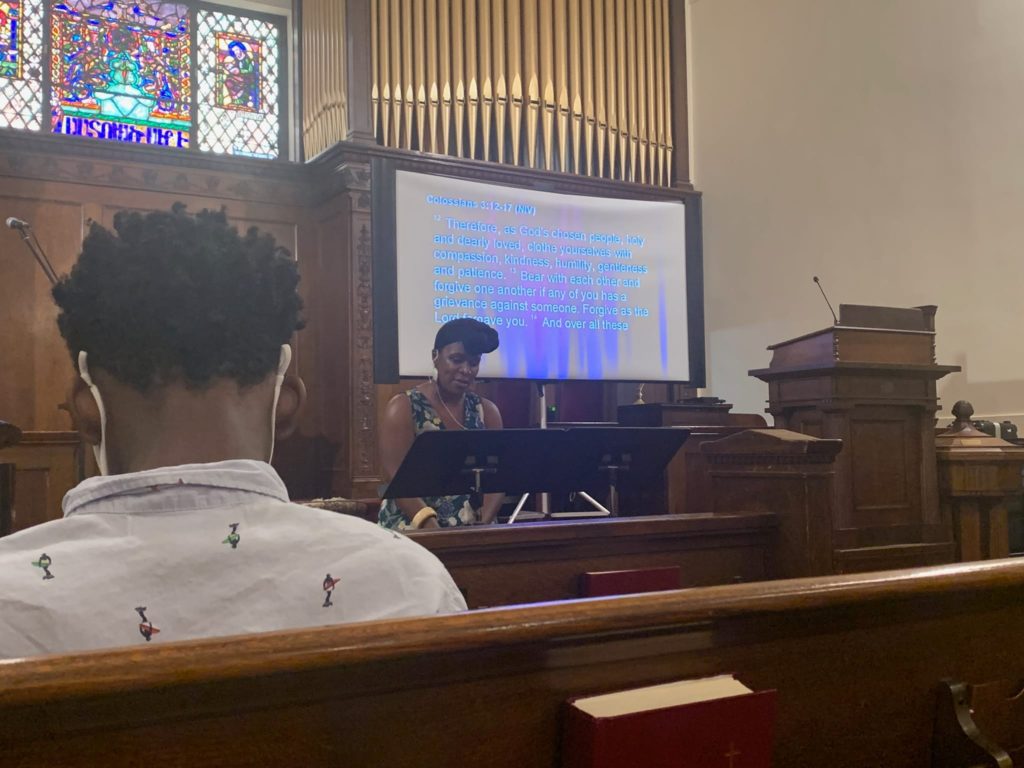The word advent is adopted from the Latin word adventus which means “coming or arrival” and advent season is one of expectant waiting that looks beyond human history and awaits Jesus Christ’s second coming. I grew up Baptist, and so I just recently starting observing advent season and for me, advent is about pushing back against the pervasive “capitalism superbowl” that runs between black Friday and Christmas Eve and leaning into the holy darkness of the “not yet” that I live in as a Christian trying to walk by faith in the midst of an incredibly broken world. As I meditate on waiting for the return of Christ during advent season, Matthew 27 gives some insight into how Jesus endured temptation while He waited to die.
For salvation is nearer to us now than when we first believed. The night is far gone; the day is at hand. –Romans 13:11-12
If I’m honest, sometimes it doesn’t seem like the light of the triumphant return of Christ is right around the corner. When I check twitter and read the news, it seems like the darkness is getting darker. But even as I type, I’m reminded that to God, “the night is bright as the day, for darkness is as light with (God)” (Psalm 139).
As Jesus dies on the cross and asks his Father why He has forsaken him, Jesus is reciting Psalm 22. As He suffers, Jesus is also identifying with every person who has ever suffered and wondered where God was. Waiting is not fun and I imagine that waiting to die is a special kind of terrible. While Jesus waits, he’s subjected to cruel and demonic mocking that is eerily similar to the demonic temptation that Jesus endured when he fasted for 40 days before the start of his earthly ministry. Both times, Satan tempted Jesus to doubt His identity.
“And after fasting forty days and forty nights, he was hungry. And the tempter came and said to him, if you are the Son of God, command these stones to become loaves of bread.” –Matthew 4:5-6
Jesus save yourself! You’re hungry right? If you are who you say you are, finesse the situation in order to temporarily deal with your hunger.
“If you are the Son of God, come down from the cross.” -Matthew 27:40
Jesus save yourself! If you are who you say you are, show and prove that God really loves you! Finesse the situation to temporarily deal with our unbelief.
At the cross, Satan used the mockers to tempt Jesus to be prideful and flex and prove his deity knowing that if He did, that he’d forfeit his destiny as Savior of the world. They also tempt Jesus to use his power in order to change their minds. And finally, they relentlessly tempt Jesus to doubt the Father’s love for him (v.43).
As we live between the already of what Jesus has accomplished in His first coming and the not yet of God’s future glory and go through trials, Satan also whispers to us just like he did to Jesus, “Save yourself. Depend on everything and anything but God.” In the waiting seasons of life, the greatest temptation is to rush everything in order to escape the uncomfortable tension that waiting produces. It’s easy to believe that God isn’t present in our suffering because I know what the song says, but sometimes, we wake up weeping and joy didn’t come in the morning (Psalm 42:10). During those times, we can succumb to the lie that God just doesn’t care (Psalm 43:2).
In the presence of unimaginable insolence, I can’t imagine what kept Jesus from coming down off the cross and revealing who He was to the mockers at Calvary. The crazy thing is that by enduring the shame of the cross, Jesus revealed the character of God by laying down His life to bring about reconciliation between a Holy God and sinful humanity.
“These are my words that I spoke to you while I was still with you, that everything written about me in the Law of Moses and the Prophets and the Psalms must be fulfilled.” Luke 24:44
Until I see Jesus face to face, I’ll never know for sure, but today I think that Luke’s words help us to see that Jesus’ faith in the word of God is what fueled his ability to withstand the lies of Satan and the horror of the cross. While dying on the cross, Jesus fought the lies of the enemy with the truth that His identity, value and worth wasn’t wrapped up in the perception of the mockers but in the will of God the Father.
God’s word is like a roadmap that reorients the gaze of our heart and mind when we’re lost in the throes of temptation and it’s wild to me that while Jesus waited to die, He used his last breaths to fight temptation by reciting a psalm that spoke to his current situation.
My God, my God, why have you forsaken me? Why are you so far from saving me, from the words of my groaning? -Psalm 22:1
Psalm 22 alternates between cries for help and expressions of trust in God’s ability to deliver because it illustrates the contradiction that can tear your soul apart when our living hope and lived experience don’t match up. While Jesus waited to die on the cross, he knew something that no one else quite did. He knew where He came from, He knew where he was going and He knew that His life and death would not be in vain and that is how He endured the cross…for the joy set before Him. This advent season may we follow in the footsteps of our Savior, empowered by His Spirit, and allow the word of God to help us trust while we wait.


